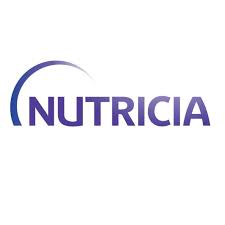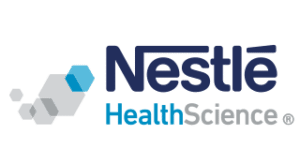Malnutrition* among patients suffering from various diseases – including cancer, and short bowel syndrome – or conditions – such as frailty in older people – can have far-reaching consequences. Inadequate nutritional care impacts patient outcomes significantly: prolonging hospital stays, diminishing quality of life by reducing independence, increasing complications, and tragically, contributing to higher mortality. Undoubtedly, access to nutritional interventions and medical nutrition** is pivotal in for malnourished patients.
Yet, availability to such care varies widely across the EU, due in part to regional disparities in reimbursement policies rather than tailoring support to individual needs. This inconsistency not only compromises patient outcomes but also drives up healthcare costs. This cycle must end now!
Zip codes: The hidden dividers
Across EU member states, variations in assessing the indispensable provision of medical nutrition to patients in need linked to reimbursement policies, healthcare infrastructure, and socioeconomic factors, contribute to unequal access to necessary medical nutritional care. Limited resources and healthcare services shortages lead to authorities having to select and provide only the top emergencies treatments and often, medical nutrition is not qualified as “essential” resulting in diminished access to medical nutritional care services and treatments.
As mentioned, disparities in reimbursement policies create barriers for patients seeking medical nutrition, disproportionately affecting vulnerable populations. Despite the essential need for everyone to eat, malnutrition among patients is often overlooked when it comes to diseases and their treatments. This oversight is particularly critical when malnutrition develops as a side effect of treatment. Where the health authorities bear the costs of a treatment, it must include the part for disease related malnutrition, irrespective of the socio-economic status of the patient. For example, if chemotherapy is reimbursed, the medical nutrition required due to the effects of chemotherapy should also be covered, as it is essential for sustaining life. Addressing these disparities requires coordinated efforts at both the EU and national levels to implement policies that ensure everyone is treated equitably, taking into consideration the latest science and research, medical guidelines and the need of the person, not his or her capacity to pay for the treatment.
Where there is a will, there is a way.
This timeless saying rings true, especially in the field of nutritional care access. The COVID-19 pandemic has shown us the power of collective determination among political leaders, health regulators, payers, patients, and healthcare providers. When stakeholders come together in a spirit of collaboration, meaningful progress can be achieved.
Disease-related malnutrition is a common condition. It affects a significant portion of the population: 1 in 5 children admitted to hospitals (1), 1 in 3 patients with cancer (1), 1 in 4 hospitalised patients (1), and 1 in 3 patients in care homes (1). It costs European countries €170 billion annually. Given these staggering statistics, policymakers must address this often-overlooked problem by finding effective solutions that ensure equality in access to nutritional care for all in need.
In this crucial time, as we stand on the brink of the European elections, let’s remember that our votes have the power to shape the future of healthcare. Let’s cast our ballots for leaders who prioritise improving health equality and addressing health disparities among the Member States. Together, we can work towards a future where access to proper nutritional care is not determined by zip codes, but by our shared commitment to ensuring the well-being of all.
MNI Secretariat
Glossary:
* Malnutrition, also called undernutrition or disease-related malnutrition, is a condition where patients are not getting the right nutrition in the right amount to sustain their health. Malnutrition occurs when patients are not able to meet their nutritional needs via the normal diet due to diseases, ageing and/or side-effects of medical treatment (e.g. cancer). Malnutrition occurs when patients are not able to meet their nutritional needs via the normal diet due to diseases, ageing and/or side-effects of medical treatment (e.g. cancer).
** Medical nutrition encompasses specialised products for nutritional therapy: Oral Nutritional Supplements, Enteral Tube Feeding (via the gastrointestinal tract), and Parenteral Nutrition (intravenous feeding). Medical Nutrition helps patients of all ages to address nutritional insufficiencies arising from a disease, disorder or condition, when they are unable to meet their requirements via normal foods. Medical Nutrition products are to be used under medical supervision. Depending on the situation medical nutrition may be required for short or long term or even for life and may be administered in diverse healthcare settings or at home.
Learn more at: www.medicalnutritionindustry.org
Resources:
1 Malnutrition – A condition that affects 33 million people in Europe, Medical Nutrition Industry, https://www.medicalnutritionindustry.org/content/uploads/2023/11/mni_infographic_malnutrition.pdf








